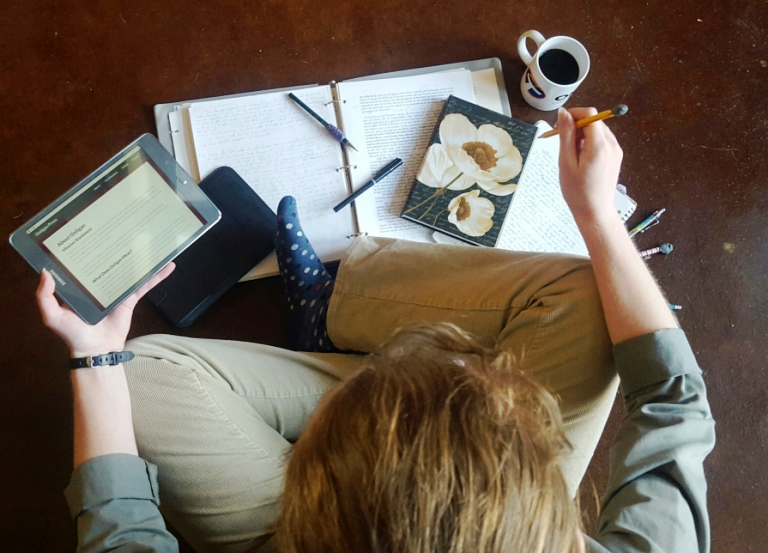Whether in English 101 or Fiction 312, you’ve probably heard the exact same admonishment from many an instructor of writing: resist the urge to edit while you write! Just get your ideas out, flesh them out, and worry about the fine points of editing later. But despite the numerous voices in your head and from those around you pleading for you to resist the temptation, is this really the best advice to take as an author, in any and every situation?
There is one central goal in the mindset of those who plead and beg of you to “just write”: finishing what you’ve started. After all, you won’t earn a grade for that research paper meticulously written and re-imagined, no matter how good it is, if it isn’t finished; similarly, there’s no publishing a story idea without at least a partial manuscript to submit. Finishing what you start is the prerogative that enables you to move on to the next project, whether academic, professional, or personal.
Nonetheless, there are situations in which editing as you write is not only helpful but necessarily rewarding in the long run. One of those situations is when new information comes to light: a new and too-relevant-to-leave-out source for that nearly-finished discussion section, or a newly-conceived plot twist that would make prewritten material contradictory. For the sake of saving yourself the pains of rewriting entire sections or sometimes entire works, these had better be dealt with sooner than later.
Manuscripts that are cumbersome in nature would also flourish from an edit-as-you-write scheme. Ryan J. Pelton, author of seventeen fiction and nonfiction books, contrasts the process of waiting until the end to edit versus editing as you write in his post from The Writing Cooperative, “Edit as You Go and Why You Must Try”. After he had re-read his hammered out manuscript with no simultaneous editing, he remarked:
…when I got to the end and saw the pile of first draft nastiness. This heaping pile of squalor, this thing not resembling any form of literature, a mound of nonsense staring back at me. The motivation to edit went out the window and I gave up.
After using and refining his method of editing as he wrote, however, his first-draft manuscripts took on a more polished appearance; to his writing community, he stated, “By the time you’re done with your story, or non fiction work, you’ll have cleaned up your work multiple times over. It will be clean, punchy, and ready for your editor. He/she will thank you.”
Making sure that consistencies remain consistent and that characters’ personalities and recurring ideas don’t contradict themselves early on will save a writer much stress from finding out that there are core elements in their manuscript that need to be scrapped or reevaluated. Your editors, primarily those who specialize in developmental editing, will also have an easier job not only editing, but also understanding the key features of the work.
Like writing an incredibly rough, unedited but ultimately complete first draft, editing as you go is not a universally optimal way to write. But at the same time, it should not be thrown out prematurely as a hindrance to finishing a manuscript. Evaluating this method to see if it could work for you is worth a go, especially if the writing itself is not the struggle, so much as liking what you write.

